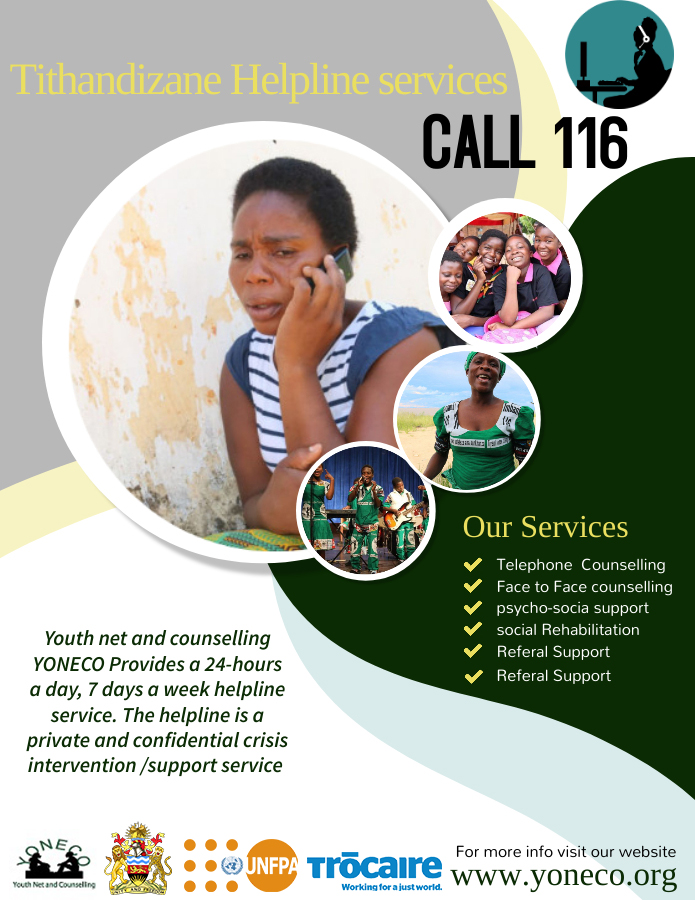A careful assessment that was conducted by YONECO’S Theatre for Development group revealed that the area of Traditional Authority (T/A) Mwambo that lies in eastern region of Malawi is among many other rural areas in the country that are ‘infested’ with a number of forms of Gender Based Violence
(GBV) that are perpetrated against women and young girls.
The revelation prompted YONECO TFD and Cultural Troupe to conduct a series of awareness campaigns on GBV in Nachuma, Chinondo and Chiphola villages in an effort to curb the transgression.
In their own discourses, the communities revealed that wife battering is quite common in many households. It was also revealed that during the rainy season, husbands leave their matrimonial homes to escape from hunger and as an attempt to avoid cultivating their household farms. This malpractice has clear consequences on agricultural labourforce and production with a resultant effect of extreme and chronic hunger in such households.
On young girls, of particular concern is a sad development whereby stepfathers are reportedly sleeping with their stepdaughters and the mothers conceal such incidences in an attempt to keep their marriages with such abusive husbands.
The above mentioned are among several incidences of gender based violence in the areas.
YONECO’s Response
In order to counteract such incidences of GBV in the area, YONECO sent its Theatre for Development and Cultural Troupe that employs edutainment antics in its awareness campaigns. Thematic messages were ‘coated’ with traditional songs and a number of plays that were staged throughout the campaign. Further to this, the organization’s Field Officers also went to the podium to further sensitize people on the dangers of GBV.
During the event, the communities were also told about the available GBV reporting mechanisms as well as YONECO’s National Helpline toll free number that was established to, among other services, provide information and counseling on issues pertaining to GBV.
The people were also given a chance to express their views and suggestions on how they thought GBV could be curbed in their area.
The awareness campaign reached out to 1, 150 men and 1,280 women totaling up to 2, 430 people.

